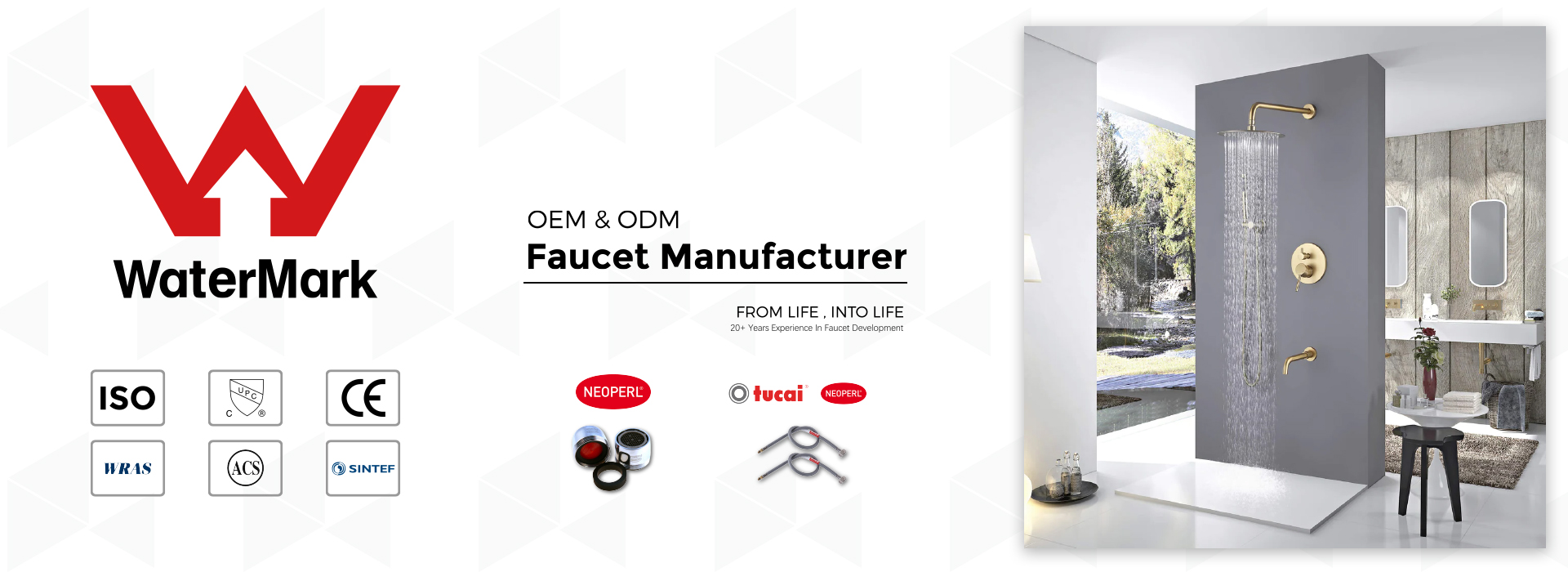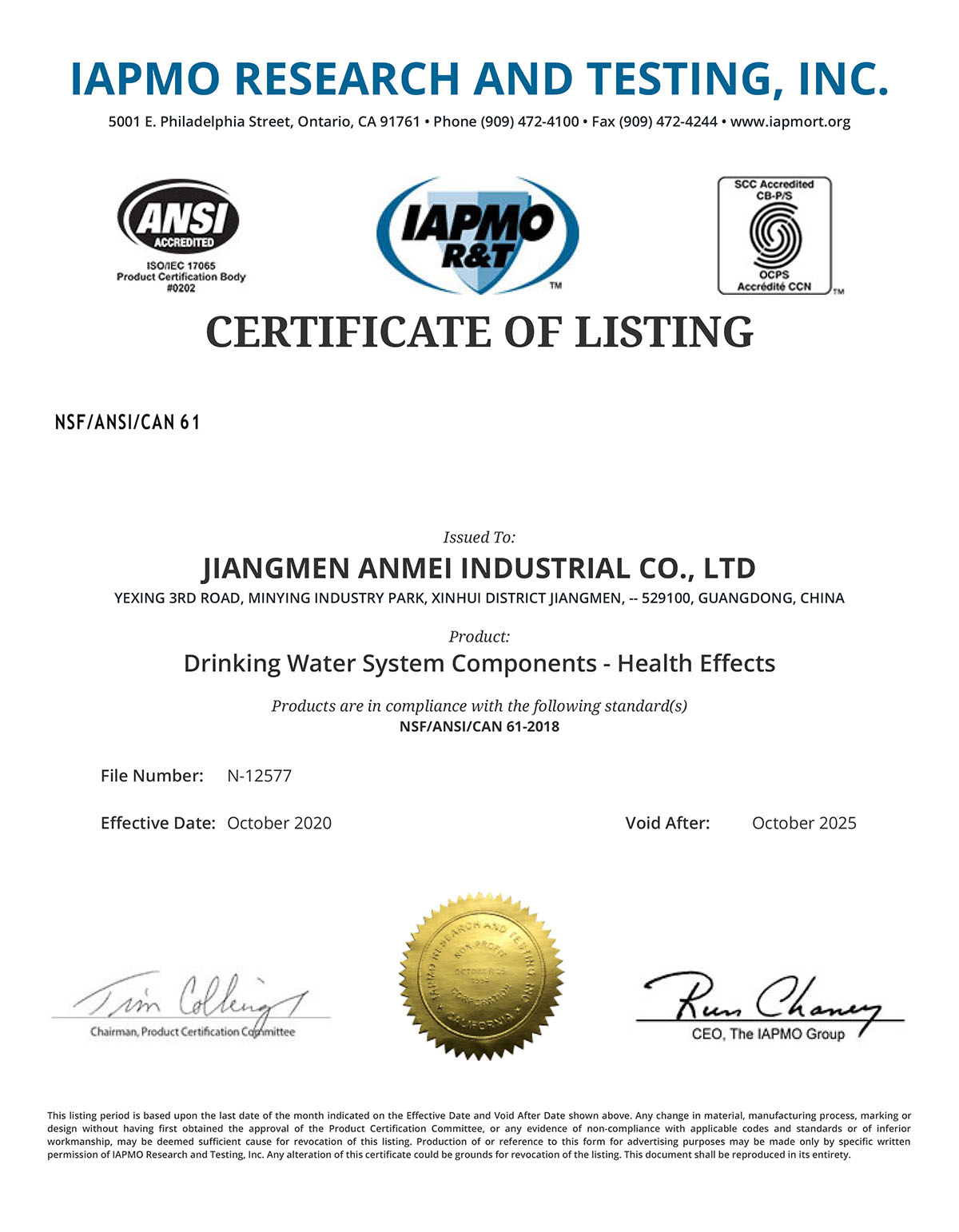
NSF CERTIFICATION

NSF is a neutral third-party certification of U.S. and international standards approved and certified by 13 national or industry authorities, including the American National Standards Institute (ANSI), the U.S. Occupational Safety and Health Administration, and the National Standards Board of Canada, etc. NSF is a designated collaborating center of the World Health Organization (WHO) for food safety and drinking water safety and handling. Products that have been tested by NSF and meet NSF standards are authorized to use the NSF mark, so any product authorized to be stamped the NSF mark means that the product is confirmed in the following ways.
it can achieve the ability to remove impurities as indicated in the product specification.
the materials that make up the product will not add polluting ingredients to the water in the process of treating water.
in line with the design and production process requirements.
the product does not have structural and functional defects.
the product’s advertising, sample information and certification standards shown in the lable is true and accurate
The NSF certification system is significant to industry professionals, consumers and manufacturers. NSF, a credible, objective and independent third-party monitoring body recognized by the public and government, has tested and verified that products comply with specific standards, which means that products with the mark have been rigorously tested and are guaranteed to consumers. All units participating in the NSF certification system must undergo testing, retesting and a third-party examination/audit, and manufacturing units must produce products in accordance with published standards. Standards include product manufacturing-related standards, materials, design, processes and other aspects.
At the same time, NSF requires that if a company wants to print the NSF mark on its products, it must comply with the strict requirements of NSF certification and authorization. These requirements include initial and periodic testing and evaluation, and even take unannounced inspections. If the mark is found to be misused or the product does not comply with the requirements, NSF may seize and seal the product and inventory, or even destroy non-conforming products, blacklist them, and take recalls, legal action, inform the public, cancel certification, or other severe actions. NSF represents the interests of all parties, will regulate the behavior of the industry, consumers and manufacturing units, and monitor the implementation of policies and certification authority
Range Criteria about faucets
Water Programs
Drinking Water Treatment Chemicals (NSF/ANSI Std. 60)
Flocculants, surfactants, disinfectants, etc.
Drinking Water Treatment Units (NSF/ANSI Std. 42, 44, 53, 55, 58, 62)
Water filters, water softeners, reverse osmosis systems, distillers, UV disinfection, etc.
Municipal Drinking Water System Components (NSF/ANSI Std. 61, AWWA)
Coatings, valves, pipes, water meters, in-line devices, etc.
Plumbing System Components (NSF/ANSI Std. 14, 24, ASTM, ASME, CSA, IAPMO, ASSE)
Plastic pipe and fittings, faucets, valves, plumbing fixtures, metal piping, electrical and telecom conduit, etc.
Pools, Spas, and Hot Tubs (NSF/ANSI Std. 50, ASME)
Filters, chemical feeding equipment, multiport valves, etc.
Wastewater Treatment Units (NSF/ANSI Std. 40, 41, 46, 69)
Whole house wastewater treatment systems, filters, pumps, etc